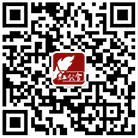普京《纽约时报》公开信刺痛美国 引飓风般反应
2013年09月13日 07:25:05来源: 环球时报

普京(资料图)
“如果普京是想引起美国人的注意,那么看上去他干得相当出色。”CNN对普京在《纽约时报》上撰写的这篇文章做出了如此评价。文章说,周三晚些时候网站刊登该文后,“引发飓风般的反应。
普京这篇文章的标题是“俄罗斯恳请谨慎”,英国《卫报》认为,文章更像警告。在文中,普京说,“最近围绕叙利亚的事件,促使我们直接与美国人民及其政治领袖对话。现在,我们两个社会之间沟通不充分,这样做显得重要。”普京提到联合国的建立和宗旨,反对军事打击叙利亚,他重申叙利亚的化武屠杀也可能是反叛武装所为,“以诱发其强有力的境外老板介入”。他辩解称,俄罗斯并非在包庇叙利亚。
“一名外国领导人在美国报纸上刊登评论文章影响美国民意并非前所未有,但极不寻常。”美国《洛杉矶时报》称,普京呼唤上帝、教皇和法制,回忆美苏作为盟友“一起击败纳粹”,但不要认为普京失去了他的锋利,在这篇措辞直率的评论文章中,这位俄罗斯总统苛评美国的“例外主义”,实际上将美国称为一个国际恶霸,并表示“仔细研究了”奥巴马总统周二有关叙利亚化学武器的演讲,决定不予同意。不过,普京仍称他“与奥巴马总统的工作以及个人关系的互信在增加”。英国《每日电讯报》说,普京写道:“鼓励人们把自己看做是与众不同,不管动机如何,都是一种极端危险的做法。”纽约《每日新闻报》称,普京不是“美国例外主义”这一理念的粉丝,他认为上帝也不是。
《纽约时报》网站上,来自亚利桑那州署名“丹尼斯”的网民留言说,普京先生给美国“上课”,令我感到不安。美国“田纳西人”网站则称,“普京可能是世界上最虚伪的领导人”。CNN报道说,对普京的这篇文章,美国国会外交关系委员会主席、民主党参议员梅南德斯称,“我几乎想呕吐,我感到忧虑,来自克格勃的某个人告诉我们什么是美国的国家利益,什么不是。这提出了一个问题,俄罗斯人的(化武换和平)提议到底有多严肃。”报道称,也有很多人看上去认为普京相对于奥巴马得分不少。
印度《第一邮报》12日说,普京在扮演特雷莎修女。美国福克斯新闻分析家麦克法兰称,世界明白普京是真正配得上诺贝尔和平奖的人之一,欢呼普京给了避免美国军事打击叙利亚一次和平的机会。报道称,美国右翼通过崇拜俄罗斯强人让奥巴马尴尬。普京对此并没有感到满意,他进一步采取反战行动,决定通过《纽约时报》“直接对美国人民布道克制的美德”。英国《泰晤士报》说,普京写了一篇极具讽刺意味的批评美国外交政策的文章,将奥巴马的全国讲话打上“极端危险”的烙印,在叙利亚问题上的斗智斗勇进入新的回合。俄罗斯总统看上去乐于折磨美国,斥责奥巴马在联合国之外行事,警告奥巴马“法就是法,我们必须遵守,不论喜欢与否。”德国《柏林日报》称,普京令人惊讶地直接转向美国人,在《纽约时报》发文,这是历史第一次,也显示克里姆林宫主人的绝对自信。

普京与奥巴马
【2013年9月11日,美国《纽约时报》网站刊登了俄罗斯总统普京的文章《A Plea for Caution From Russia》。普京阐释了自己对叙利亚局势的看法,呼吁奥巴马遵守国际法,并批评了“美国例外论”。该文今日刊登于《纽约时报》纸质版。观察者网全文翻译。】
叙利亚当前局势敦促我必须与美国人民、政治领导人展开直接对话。俄美两国社会缺乏沟通,直接对话尤为重要。
俄美两国关系历经若干阶段。冷战期间,我们互为敌手。但我们也曾结为盟友,联手击败德国纳粹。联合国的建立宗旨便是为了防止此类惨剧重演。
联合国各个创始国均主张,战争与和平的决策只能通过共识达成,安理会常任理事国的否决权是联合国宪章所授予的。关于这一点,美国也没有异议。这一架构的大智慧支撑了数十年来大体稳定的国际秩序。
没人希望联合国重蹈国联的覆辙。国联因缺乏实际力量而垮台。如果一些大国绕过联合国,未经安理会授权便采取军事行动,国联的悲剧或将重演。
美国意欲对叙利亚进行军事打击,不顾众多国家和政治、宗教领袖们(包括教皇在内)的强烈反对。这将导致更多无辜平民牺牲、战事升级,战火甚至可能越过叙利亚边境。军事打击将加剧暴力,释放新一波的恐怖主义势力。这也将破坏解决伊朗核危机、巴以冲突的多边政治斡旋,进一步破坏中东和北非地区的稳定,甚至可能全盘颠覆国际法和国际社会的秩序。
叙利亚战争不是民主之争,而是多宗教国家内部的政府与反对派之间的武装冲突。叙利亚国内不存在民主卫士。更多的是基地组织武装分子,以及各式各样的极端分子在与叙政府作战。美国国务院已经把反对派中的“努斯拉阵线”、“伊拉克与黎凡特伊斯兰国”列入恐怖组织名单。反对派接受了外国武器的援助,而这场内战已成为世界上最惨烈的战斗之一。
来自阿拉伯国家的雇佣兵,以及来自西方国家(甚至包括俄罗斯)的雇佣兵值得我们深切关注。他们在叙利亚积累军事经验以后,会不会潜伏回国?要知道,一些极端分子经历利比亚战争后,涌向了马里。这对我们都是威胁。
俄罗斯从一开始就倡导和平对话,帮助叙利亚人达成妥协方案。我们不是在维护叙利亚政府当局,而是在维护国际法。我们要利用联合国安理会这一机制,并坚信在这复杂而动荡的世界,维护法治与秩序是防止国际秩序陷入混乱的必要途径。法律终归是法律,不论好恶,我们都应该遵守。根据现行国际法,只有在安理会授权之下,或者出于自卫,才可能使用武力。其他任何情况下使用武力都将违反联合国宪章,并构成侵略。
毋庸置疑,叙利亚有人使用了化学武器。但每一条线索都指向以下事实:化学武器不是叙利亚政府军使用的,而是反对派武装使用的,其目的是招引外国主子出面干预。那些外国保护人将与极端分子站在一边。有消息称武装分子正酝酿发起新一轮袭击——这次是针对以色列——国际社会对此不可不察。
我们应当警觉的是,美国对外国采取军事干预的行为已经屡屡发生。这符合美国的长期利益吗?我很怀疑。全世界数以百万计的人,逐渐开始怀疑美国的民主典范形象,而是视为单纯依靠武力、扯着“非敌即友”的大旗拉帮结派的国家。
事实已经证明,武力并不奏效。阿富汗国内动荡不安,而国际部队撤退以后会发生什么,没人敢打包票。利比亚已经分裂为若干部族和阵营。伊拉克的内战还在继续,每天都有数十人遇害。在美国国内,许多人拿伊拉克和叙利亚作比较,质问政府为何要犯第二次错。
无论“定点清除”如何精准,平民伤亡不可避免。炸弹杀害的老弱妇孺,恰恰是策动军事打击的人想要保护的对象。
世界各国必然心生疑问:国际法都保不了你,那你只能自寻出路了。因此,越来越多的国家希望掌握大规模杀伤性武器。这符合逻辑推理:一旦你手上有炸药,没人敢碰你。我们一方面大谈特谈武器不扩散的必要性,另一方面,谈判的现实基础却在逐渐崩溃。
我们必须抛弃用武力说话的方式,回到文明的外交和政治磋商的道路上来。
最近几天出现了避免军事行动的契机。叙利亚当局表示愿意将其化学武器移交国际社会控制,美国、俄罗斯和其他各国必须利用这个机会。根据奥巴马总统的发言判断,美国将其视为军事打击以外的另一条道路。
我欢迎奥巴马总统与俄罗斯一道,继续在叙利亚问题上展开对话。我们必须携手合作,保证政治解决的希望,回到谈判桌,这也是6月份八国峰会所达成的共识。
如果我们避免军事干预叙利亚,这将改善国际事务的气氛、增进国际互信,不论哪国都不会是输家,在其他重要事务上合作大门也将顺利开启。
我与奥巴马总统的工作、私人关系正在逐渐积累信任。我对此表示赞赏。我还仔细研究过本周二他发表的讲话。其中有一点我不敢苟同。他提到美国例外论,说美国的政策是“美国的独特之处。这是我们之所以‘例外’的原因”。鼓励国民自视“例外”,这是极端危险的行为,不论动机如何美好。有大国,有小国;有穷国,有富国;有的国家民主历史悠久,有的国家还没获得民主。各国有各国的政策。我们都有各自的特点,但祈神赐福之时,毋忘上帝造化,众人生而平等。

(朱新伟译) RECENT events surrounding Syria have prompted me to speak directly to the American people and their political leaders. It is important to do so at a time of insufficient communication between our societies.
Relations between us have passed through different stages. We stood against each other during the cold war. But we were also allies once, and defeated the Nazis together. The universal international organization — the United Nations — was then established to prevent such devastation from ever happening again.
The United Nations’ founders understood that decisions affecting war and peace should happen only by consensus, and with America’s consent the veto by Security Council permanent members was enshrined in the United Nations Charter. The profound wisdom of this has underpinned the stability of international relations for decades.
No one wants the United Nations to suffer the fate of the League of Nations, which collapsed because it lacked real leverage. This is possible if influential countries bypass the United Nations and take military action without Security Council authorization.
The potential strike by the United States against Syria, despite strong opposition from many countries and major political and religious leaders, including the pope, will result in more innocent victims and escalation, potentially spreading the conflict far beyond Syria’s borders. A strike would increase violence and unleash a new wave of terrorism. It could undermine multilateral efforts to resolve the Iranian nuclear problem and the Israeli-Palestinian conflict and further destabilize the Middle East and North Africa. It could throw the entire system of international law and order out of balance.
Syria is not witnessing a battle for democracy, but an armed conflict between government and opposition in a multireligious country. There are few champions of democracy in Syria. But there are more than enough Qaeda fighters and extremists of all stripes battling the government. The United States State Department has designated Al Nusra Front and the Islamic State of Iraq and the Levant, fighting with the opposition, as terrorist organizations. This internal conflict, fueled by foreign weapons supplied to the opposition, is one of the bloodiest in the world.
Mercenaries from Arab countries fighting there, and hundreds of militants from Western countries and even Russia, are an issue of our deep concern. Might they not return to our countries with experience acquired in Syria? After all, after fighting in Libya, extremists moved on to Mali. This threatens us all.
From the outset, Russia has advocated peaceful dialogue enabling Syrians to develop a compromise plan for their own future. We are not protecting the Syrian government, but international law. We need to use the United Nations Security Council and believe that preserving law and order in today’s complex and turbulent world is one of the few ways to keep international relations from sliding into chaos. The law is still the law, and we must follow it whether we like it or not. Under current international law, force is permitted only in self-defense or by the decision of the Security Council. Anything else is unacceptable under the United Nations Charter and would constitute an act of aggression.
No one doubts that poison gas was used in Syria. But there is every reason to believe it was used not by the Syrian Army, but by opposition forces, to provoke intervention by their powerful foreign patrons, who would be siding with the fundamentalists. Reports that militants are preparing another attack — this time against Israel — cannot be ignored.
It is alarming that military intervention in internal conflicts in foreign countries has become commonplace for the United States. Is it in America’s long-term interest? I doubt it. Millions around the world increasingly see America not as a model of democracy but as relying solely on brute force, cobbling coalitions together under the slogan “you’re either with us or against us.”
But force has proved ineffective and pointless. Afghanistan is reeling, and no one can say what will happen after international forces withdraw. Libya is divided into tribes and clans. In Iraq the civil war continues, with dozens killed each day. In the United States, many draw an analogy between Iraq and Syria, and ask why their government would want to repeat recent mistakes.
No matter how targeted the strikes or how sophisticated the weapons, civilian casualties are inevitable, including the elderly and children, whom the strikes are meant to protect.
The world reacts by asking: if you cannot count on international law, then you must find other ways to ensure your security. Thus a growing number of countries seek to acquire weapons of mass destruction. This is logical: if you have the bomb, no one will touch you. We are left with talk of the need to strengthen nonproliferation, when in reality this is being eroded.
We must stop using the language of force and return to the path of civilized diplomatic and political settlement.
A new opportunity to avoid military action has emerged in the past few days. The United States, Russia and all members of the international community must take advantage of the Syrian government’s willingness to place its chemical arsenal under international control for subsequent destruction. Judging by the statements of President Obama, the United States sees this as an alternative to military action.
I welcome the president’s interest in continuing the dialogue with Russia on Syria. We must work together to keep this hope alive, as we agreed to at the Group of 8 meeting in Lough Erne in Northern Ireland in June, and steer the discussion back toward negotiations.
If we can avoid force against Syria, this will improve the atmosphere in international affairs and strengthen mutual trust. It will be our shared success and open the door to cooperation on other critical issues.
My working and personal relationship with President Obama is marked by growing trust. I appreciate this. I carefully studied his address to the nation on Tuesday. And I would rather disagree with a case he made on American exceptionalism, stating that the United States’ policy is “what makes America different. It’s what makes us exceptional.” It is extremely dangerous to encourage people to see themselves as exceptional, whatever the motivation. There are big countries and small countries, rich and poor, those with long democratic traditions and those still finding their way to democracy. Their policies differ, too. We are all different, but when we ask for the Lord’s blessings, we must not forget that God created us equal.
Vladimir V. Putin is the president of Russia.
A version of this op-ed appears in print on September 12, 2013, on page A31 of the New York edition with the headline: A Plea for Caution From Russia.

 红歌会网 SZHGH.COM
红歌会网 SZHGH.COM

 粤公网安备44030002003979号
粤公网安备44030002003979号
